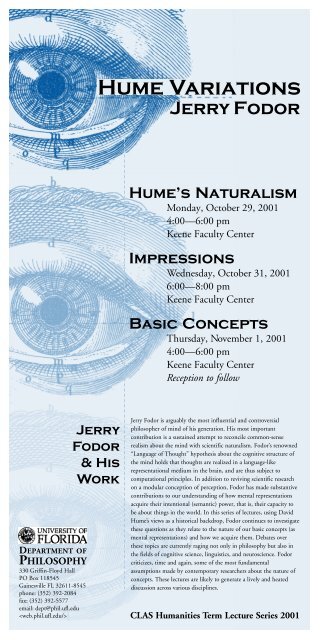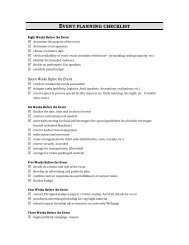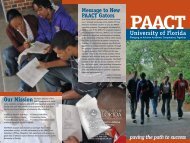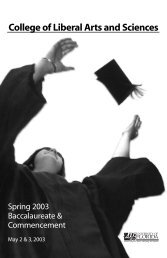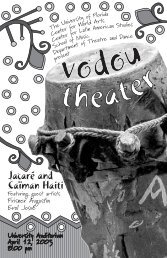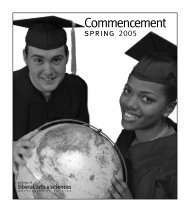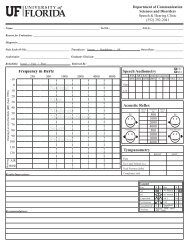Hume Variations Jerry Fodor - Clas News and Publications
Hume Variations Jerry Fodor - Clas News and Publications
Hume Variations Jerry Fodor - Clas News and Publications
Create successful ePaper yourself
Turn your PDF publications into a flip-book with our unique Google optimized e-Paper software.
<strong>Hume</strong> <strong>Variations</strong><br />
<strong>Jerry</strong> <strong>Fodor</strong><br />
<strong>Hume</strong>’s Naturalism<br />
Monday, October 29, 2001<br />
4:00—6:00 pm<br />
Keene Faculty Center<br />
Impressions<br />
Wednesday, October 31, 2001<br />
6:00—8:00 pm<br />
Keene Faculty Center<br />
Basic Concepts<br />
Thursday, November 1, 2001<br />
4:00—6:00 pm<br />
Keene Faculty Center<br />
Reception to follow<br />
DE PA RT M E N T O F<br />
PHILOSOPHY<br />
330 Griffin-Floyd Hall<br />
PO Box 118545<br />
Gainesville FL 32611-8545<br />
phone: (352) 392-2084<br />
fax: (352) 392-5577<br />
email: dept@phil.ufl.edu<br />
<br />
<strong>Jerry</strong><br />
<strong>Fodor</strong><br />
& His<br />
Work<br />
<strong>Jerry</strong> <strong>Fodor</strong> is arguably the most influential <strong>and</strong> controversial<br />
philosopher of mind of his generation. His most important<br />
contribution is a sustained attempt to reconcile common-sense<br />
realism about the mind with scientific naturalism. <strong>Fodor</strong>’s renowned<br />
“Language of Thought” hypothesis about the cognitive structure of<br />
the mind holds that thoughts are realized in a language-like<br />
representational medium in the brain, <strong>and</strong> are thus subject to<br />
computational principles. In addition to reviving scientific research<br />
on a modular conception of perception, <strong>Fodor</strong> has made substantive<br />
contributions to our underst<strong>and</strong>ing of how mental representations<br />
acquire their intentional (semantic) power, that is, their capacity to<br />
be about things in the world. In this series of lectures, using David<br />
<strong>Hume</strong>’s views as a historical backdrop, <strong>Fodor</strong> continues to investigate<br />
these questions as they relate to the nature of our basic concepts (as<br />
mental representations) <strong>and</strong> how we acquire them. Debates over<br />
these topics are currently raging not only in philosophy but also in<br />
the fields of cognitive science, linguistics, <strong>and</strong> neuroscience. <strong>Fodor</strong><br />
criticizes, time <strong>and</strong> again, some of the most fundamental<br />
assumptions made by contemporary researchers about the nature of<br />
concepts. These lectures are likely to generate a lively <strong>and</strong> heated<br />
discussion across various disciplines.<br />
C LAS Humanities Te rm Lecture Series 2001


